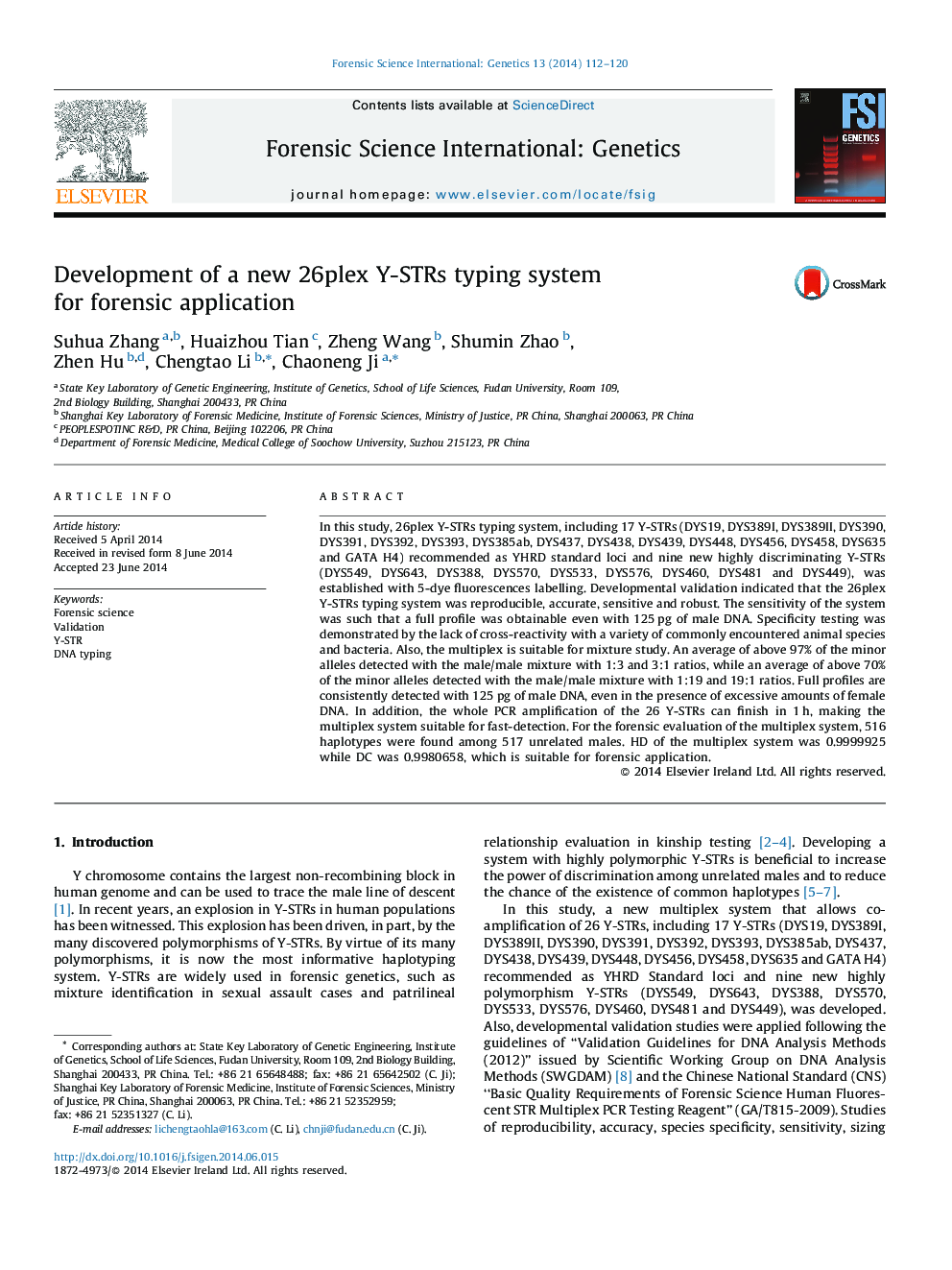| Article ID | Journal | Published Year | Pages | File Type |
|---|---|---|---|---|
| 6553936 | Forensic Science International: Genetics | 2014 | 9 Pages |
Abstract
In this study, 26plex Y-STRs typing system, including 17 Y-STRs (DYS19, DYS389I, DYS389II, DYS390, DYS391, DYS392, DYS393, DYS385ab, DYS437, DYS438, DYS439, DYS448, DYS456, DYS458, DYS635 and GATA H4) recommended as YHRD standard loci and nine new highly discriminating Y-STRs (DYS549, DYS643, DYS388, DYS570, DYS533, DYS576, DYS460, DYS481 and DYS449), was established with 5-dye fluorescences labelling. Developmental validation indicated that the 26plex Y-STRs typing system was reproducible, accurate, sensitive and robust. The sensitivity of the system was such that a full profile was obtainable even with 125Â pg of male DNA. Specificity testing was demonstrated by the lack of cross-reactivity with a variety of commonly encountered animal species and bacteria. Also, the multiplex is suitable for mixture study. An average of above 97% of the minor alleles detected with the male/male mixture with 1:3 and 3:1 ratios, while an average of above 70% of the minor alleles detected with the male/male mixture with 1:19 and 19:1 ratios. Full profiles are consistently detected with 125Â pg of male DNA, even in the presence of excessive amounts of female DNA. In addition, the whole PCR amplification of the 26 Y-STRs can finish in 1Â h, making the multiplex system suitable for fast-detection. For the forensic evaluation of the multiplex system, 516 haplotypes were found among 517 unrelated males. HD of the multiplex system was 0.9999925 while DC was 0.9980658, which is suitable for forensic application.
Related Topics
Life Sciences
Biochemistry, Genetics and Molecular Biology
Genetics
Authors
Suhua Zhang, Huaizhou Tian, Zheng Wang, Shumin Zhao, Zhen Hu, Chengtao Li, Chaoneng Ji,
